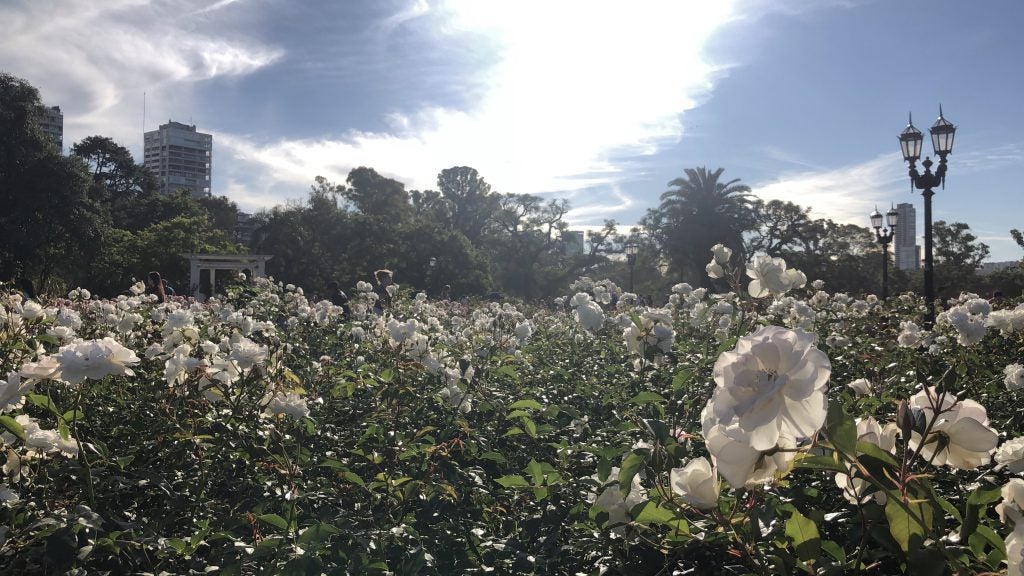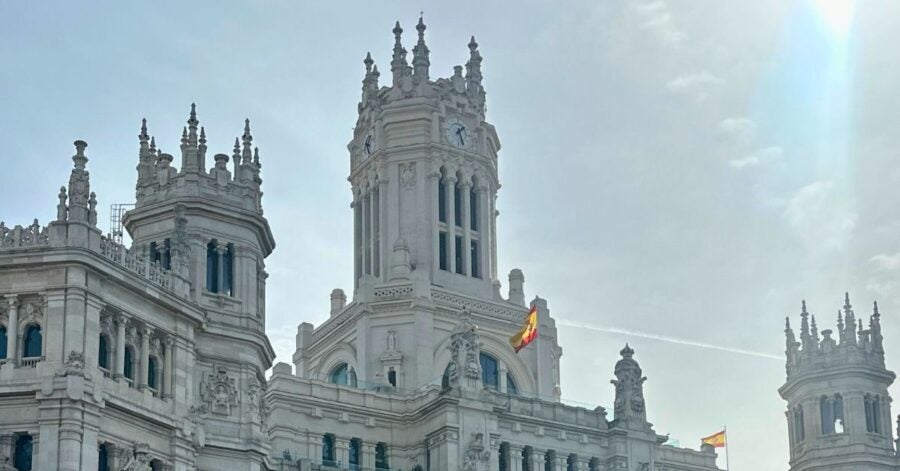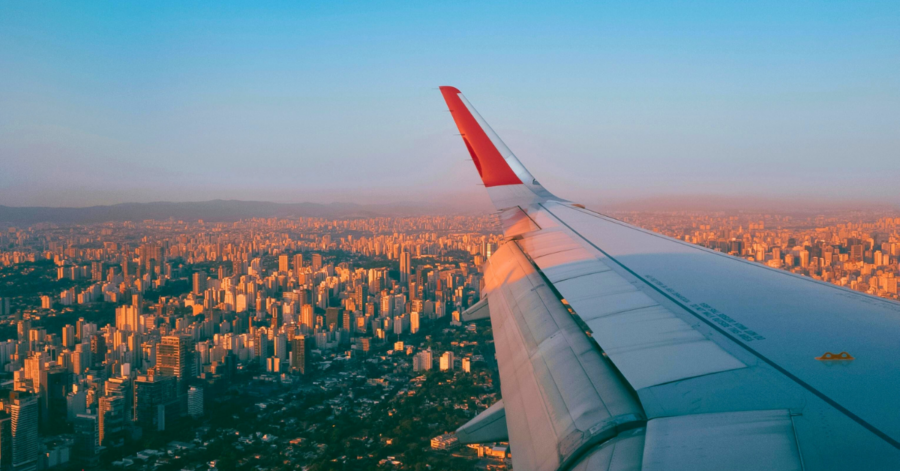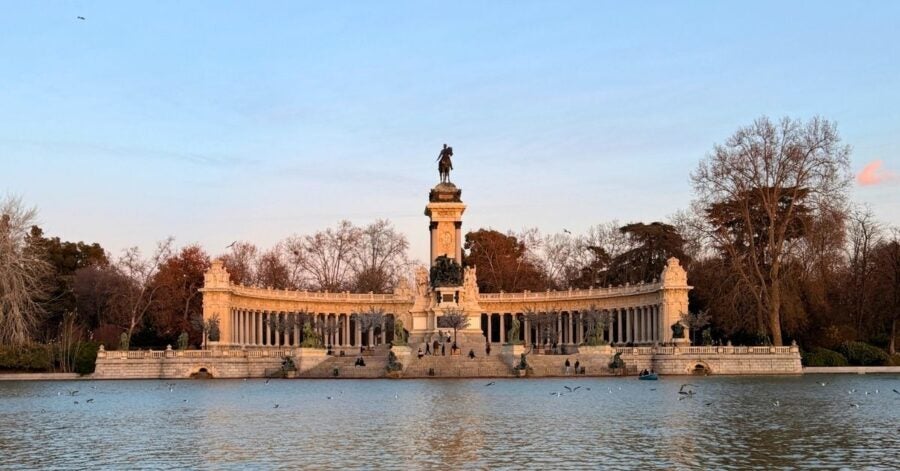Hey longhorns! My name is Joelean Hall and I’m studying in Buenos Aires this semester. I am a senior majoring in International Relations and Global Studies. Since my last blog post, I have taken a considerable amount of time at home studying and getting ready for the end of the semester (finals!). I have no travel stories beyond what I have already shared but there are more crucial pieces of Argentinian history and the current situation that I would like to share.

In my first blog post I mentioned that I was taking a course on militancy and dictatorships in Latin America during the Cold War. I visited and toured an illegal detention and torture center called el Museo Sitio de Memoria or la ESMA. Recently, we learned about another dark side of Argentina’s dictatorship.
In the ESMA, as well as el Campo de Mayo and Pozo de Banfield, there were maternity wards for women who were detained while they were pregnant. These maternity wards were usually equipped with military doctors, assisting women with labor and births and thereafter, taking the newly-born babies as “botin de Guerra” to be given to families in the military, put in orphanages, or sold. In rare occasions, were these babies given back to their family as the mothers and fathers of these babies were “desaparecido” (disappeared). The military dictatorship believed these children were born into subversive families that would teach them to revolutionize and that the new generation must be raised differently. This all came to light thanks to the organizations Asociacion Madres de Plaza de Mayo and Asociacion Civil Abuelas de Plaza de Mayo.
La Asociacion Madres de Plaza de Mayo is an association of Argentine mothers whose children disappeared during the dictatorship between 1976 and 1983. They began marching in Plaza de Mayo in 1977, wearing white head scarves to identify themselves and to better protest the atrocities committed to their families. This association is still alive today, winning the United Nations Prize for Peace Education in 1999 and Estela Barnes de Carlotto, the president, winning the United Nations Prize in the Field of Human Rights in 2003. The other association, La Asociacion Civil Abuelas de Plaza de Mayo, is a human rights organization with the goal of finding the grandchildren that were illegally stolen and adopted during the dictatorship. Through forensic work, public awareness campaigns, and legal battles, there have been 128 of 500 grandchildren found. If you would like to read more about these organizations, their websites are https://www.abuelas.org.ar/ and http://madres.org/
I had the opportunity to meet a “nieto” (grandson) in my militancy and dictatorships in Latin America course who took questions from international students on his experience and helped us understand more profoundly the inner-workings of the judicial process. His parents were Uruguayans hiding from their own country’s dictatorship in Argentina, detained in 1977. Their son was born was born in 1978 and taken from his mother by the military doctor, Jorge Antonio Bergés. He lived 17 years, raised by a family who lied to him about his birth until 1995, when his parents were both jailed and he was taken to court to be told about his real identity and be reunited with his biological family.
He retold his story bit by bit, constructing his history from 23 years ago to today — the confusion of being told the parents that raised him were not his real parents, that his biological parents were killed during the military dictatorship, and that his biological family is waiting to meet him. With all the sadness and heartbreak I felt for his story, he was quick to reassure us that he does not have hate in his heart but is grateful for the extension of love and family since he found out the truth of his life.
Having seen the maternity ward at the ESMA and then meeting a nieto that was born there profoundly affected me. Nietos were victims of the systemic processes of crimes against humanity and survivors of the state’s attempt to eradicate their biological identity. This profound experience demonstrates the vulnerability and fragility of identity and human lives in general.
Meeting a nieto impacted me in ways I am still trying to understand. When I chose to study abroad in Argentina, I was looking forward to learn about the dictatorship and its effects on civil society to this day. What I have learned in the past three months over this subject have changed what I understood of international relations. In all the great ways that globalization and international politics can change countries, I think as a global community, we may not have done enough to address the affects of the dark side of international interventions. As I had mentioned in my first blog post, the United States supported Plan Condor which led to the nieto’s Uruguayan parents to be discovered hiding in Argentina and consequently killed. In America, these grand errors in international relations have not been addressed and I believe we could fall to making similar mistakes without a greater awareness of this. The nieto I met continues to talk about his experience into his 40s, despite how difficult it can be, based on his motivation to never (nunca mas) see these crimes committed again.
Stay woke and hook ’em!
This post was contributed by Joelean Hall, a 2018 Global Ambassador. Joelean is studying at Torcuato Di Tella in Buenos Aires.
Don’t get left behind. Read more about Joelean’s experience in Argentina>>






I am a foreigner living on and off in Argentina. I few years ago I went to ESMA and was surprised that among those taking the tour were quite a number of Argentines who wanted 30 years later to understand their own history and what had happened. They had lived through the period but knew nothing or did not want to know what was happening, or just believed the media fake news at the time. Similar to what happened with the Jews where many German people were oblivious to their fate.
Keeping alive the memory and commenorating so many lives lost is a critical means to prevent future abuses, including from international allies. Writing your blog really helps in this regard as it comes up easily on a google search.
The current government of Argentina and the oligarchy that supports it would like to do the opposite – get rid of ESMA and the Memorial Park. Of course the human rights group defend them, but the pressure is there to forget and “move on”.